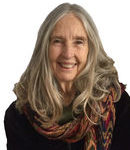
One of the more surprising things I’ve learned about aging is that older people are generally happier than younger ones. Several studies, drawing on data from dozens of countries, have confirmed that life satisfaction tends to follow a U-shaped curve across adulthood: Contentment is fairly high in young adulthood, slowly drops and hits a low point at about 50, and then steadily climbs to new heights in later life. Other factors, such as good-enough health, an optimistic outlook, and environmental support play a role in fostering late-life happiness, yet age itself is a friend of contentment. Long years often bring a maturing and mellowing of perspective, and changes in the aging brain also play a role in late-life well-being.
Long years bring a rich store of experiences from which we can learn the art of living, so long as our minds, eyes, and ears stay open, and our hearts remain teachable. Reflecting on our experience, over time, enables us to see more clearly and deeply into life as it is, rather than through the filter of our unexamined opinions, desires, and expectations about how things should be.
From the perspective afforded by decades of living, we recognize that the human journey is far more complex, paradoxical, and unpredictable than it may once have seemed. We learn that there are multiple ways of viewing situations, that we do not always know what is right or best, and that actions may not always have the desired effect. Whereas it may once have seemed fairly simple to distinguish good from bad experiences, with age we come to appreciate the many shades of gray and the wide array of paradoxes and puzzlements that are the stuff of life.
Such post-operational thinking enables us to stand back and view situations with greater clarity and equanimity. And as we move beyond oversimplified, either-or vision and its inevitable companion, certainty, we become less reactive and more discerning about when to act and when to “let be.”
My mother grew more and more content as she aged, and she knew a lot about letting be. (She was also gusty and could be quite a force at times.) About two years before her death, I was visiting one day and asked how she was doing. Instead of her usual response (“wonderful” or “really good”), she said, “Pretty good.” When I urged her to tell me more, she added, “There are some things going on around here that I don’t much like.” When I asked, “What things?” she paused and confided with a shy smile, “I don’t remember.” We both laughed at that, and then I asked what she did when there was something going on that she didn’t like.
She thought for a moment and said, “Well, first I see if there’s anything I can do about it, and if there is, I do it. And if there isn’t, I let it go.” Years later, I realized that was a wonderful recipe for contentment.
Despite the inevitable losses of late life, emotions like sadness and anger become more muted and less frequent with age, while the capacity for joy, delight, wonder, and gratitude often deepens. One reason for this shift is the tendency for the emotion-processing centers of the brain (the amygdala) to become less reactive with age, especially to negative emotional stimuli.
In one study, psychologist Mara Mather and her associates showed younger and older adults negative and positive imagery and noticed significant differences between the two age groups in terms of brain activity, emotional experience, and recall. Brain scans revealed that elders’ amygdala were less responsive to negative stimuli than to positive stimuli. In addition, older participants reported fewer negative emotions during the session and were more likely to recall positive imagery afterward, compared to younger participants2.
Changes in the brain and in our perspective support the development of what some gerontologists call the emotional mastery of later life: the ability to recognize and regulate our emotions and to express them in non-harming ways. Our responses to other people and to life events tend to mature and become more adaptive, flexible, and kind. With age, for example, we are less likely under stress to blame or turn against others and more likely to try to understand and find meaning or humor in a difficult situation. Summarizing a number of studies with adults over 65, Berkeley psychology professor Dacher Keltner notes, “With age people can more readily move in and out of different emotional states . . . [and] report experiencing more freedom and control during emotional experiences.”3
The calming of the aging brain, the broadening and maturing of our perspective, and the growth of emotional mastery enhance our own happiness, which is a blessing in itself. More importantly, these same late-life developments, coupled with long years of experience and learning, also contribute to the growth of another late-life gift that the human family desperately needs—wisdom—which is the capacity to sense the best course of action in important, complex, and uncertain situations.
You can reach Dr. Stewart, the author of “Winter’s Graces: The Surprising Gifts of Later Life” here.



This writing contains a lot of wisdom, I enjoyed it, Feel I am happier as a “mature” woman…….
Thanks for reading, Tess. I agree, Dr. Stewart has wonderful insight.
Very interesting, we do see situations differently as we age. Thank you.
Thanks for reading, Diane!